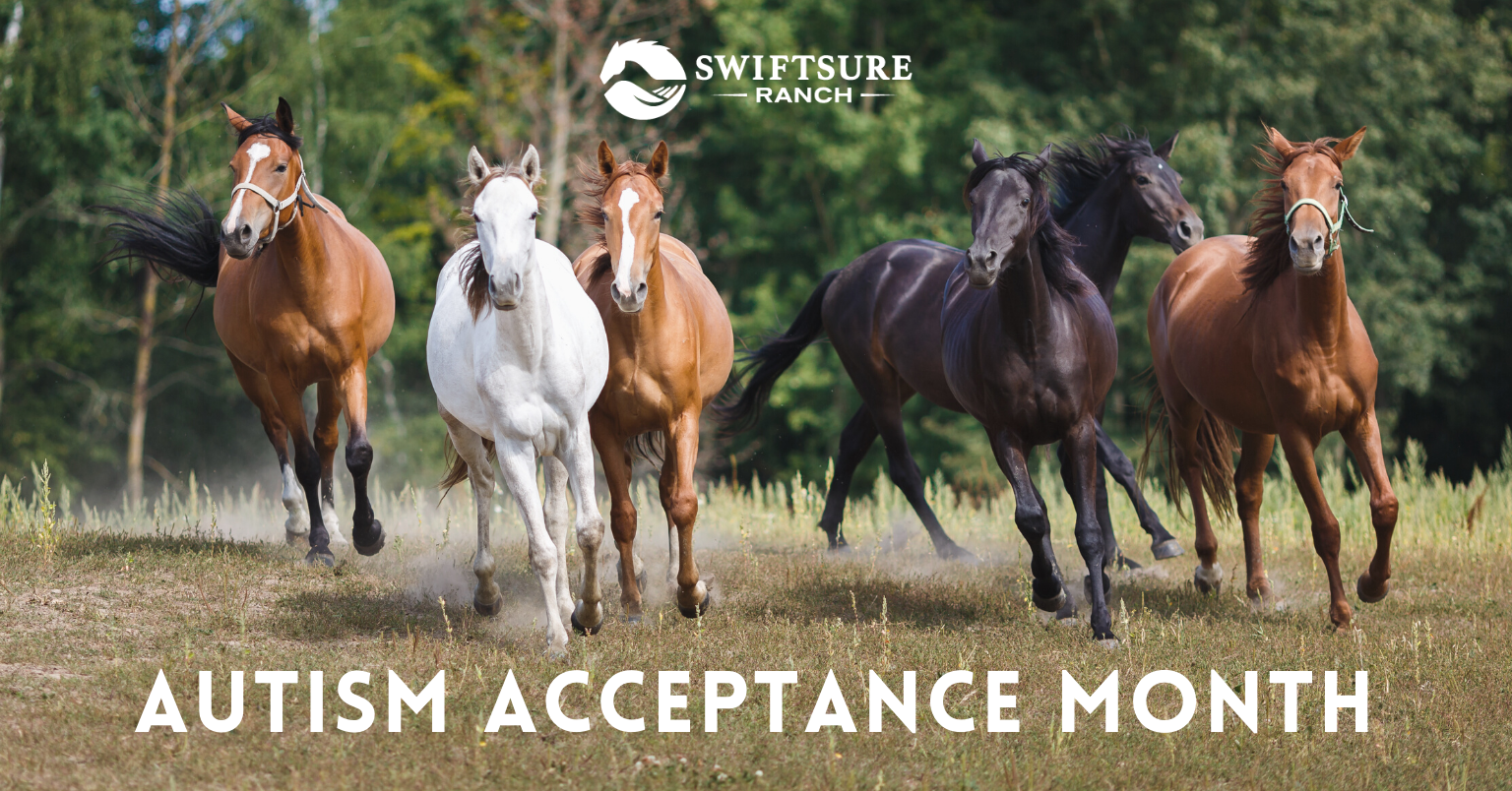
Hello to the beginning of our second quarter, spring session, and warmer Idaho weather! April is such a fun month at the ranch as it’s a time that we begin to move outdoors again, back to the sensory trail, and really get to enjoy the fresh air in our lessons. Even more than that – April is Autism Acceptance Month.
Did you know the month of April was changed from Autism Awareness Month to Autism Acceptance Month? A year ago, the Autism Society of America formally shifted the terminology to promote community acceptance and full social integration. One out of every 54 Americans is living with autism.
Here at Swiftsure, we are committed to helping our participants achieve their goals through equine-assisted activities. Participants with autism can experience reduced anxiety and develop their communication and behavioral skills as they work with our herd and instructors in their tailored lessons. Best of all, those who have difficulty with verbal communication may experience physical communication and bonding with our horses, creating a lasting foundation for better social communication in their human relationships as well.
Many think of Swiftsure as a place where you come if you have a physical disability and need additional assistance; that is false. Commonly, we see participants that, if you saw them on the street, you’d have no idea that they were struggling with any mental or physical disability.
April is also Parkinson’s disease awareness, stress awareness, and paralyzed veterans awareness month. While these three additional issues are seen less frequently at the ranch, it’s important to know that we are here and trained to provide services for all of these diagnoses and individuals who need a chance to experience strength and freedom through therapeutic equine connection.
Specifically, for our participants with Parkinson’s, it’s been proven that equine therapy can improve balance, strength, muscle tone, reaction time, coordination, and postural control. Leading to overall improved functional ability of the individual with Parkinson’s disease.
For those suffering from stress and anxiety, equine-assisted therapies and activities can help individuals build confidence, self-sufficiency, communication, trust, perspective, social skills, impulse control, and learn boundaries. All of which are critical to thrive in their everyday lives.
Finally, for those with paralysis, if paralysis is permanent, the rider’s core strengthening, balance and fine motor skills can all show signs of improvement. Horseback riding can improve muscle strength, increased range of motion, increase metabolism, and improve posture.
Overall, equine therapy is a powerful tool for all individuals. Last month we looked further into MS and the positive impacts that equine therapy has had on our participants. If you would like more information on the equine-assisted therapies and activities provided by Swiftsure, visit: https://swiftsureranch.org/.


